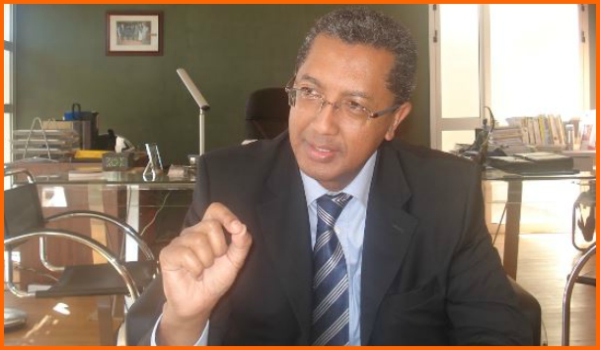
During the debate in the Malagasy Parliament on 13 December 2017, referring to the abortion clauses in the new family planning law, Senator Olivier Rakotovazaha said: “Abortion is not consistent with Malagasy culture. Our blessings encourage even young married women to give birth to seven girls and seven boys.” This is a response to the Senator from Richard J Randriamandrato, special advisor to the President of the Malagasy Senate since February 2016, published in L’Express on 3 January 2018:
The adoption by the Parliament of the Law on Reproductive Health and Family Planning is good news. An important step in the field of public health has been taken. This law will allow State and non-State actors involved in the field to strengthen the education of families, and particularly of young girls and boys, to avoid unwanted pregnancies. We therefore welcome this advance, which can be credited to the Minister of Public Health, Professor Lalatiana Andriamanarivo, a world renowned paediatric surgeon who had the courage to defend the bill as early as June 2017.
Yet a serious problem remains. An article in L’Express (14/12/2017) entitled, “Therapeutic abortion prohibited” reported the amazing comment of Senator Rakotovazaha, who seems to see ethical dissimilarities between abortion for unwanted pregnancy and therapeutic abortion. I do not know if the honourable senator has seven boys and seven girls himself, or plans to do so, but as far as I am concerned, with two children, I am at the limit of my capacity. And I am shocked to see one of my staff with 14 children, including 9 who are still at home!
In June 2017, when the family planning bill was first introduced by the Minister of Public Health, the Deputies were razor-sharp in taking the “revolutionary” step of authorising abortion under strict medical control. Unfortunately, the Senators rejected these clauses in spite of roundtables on the subject and information sessions outside the Chambers.
The position of the Catholic Church has often been raised. The Apostolic Letter of Pope Francis rightly recalls the inviolability of human life. But the Pope has also put water in his wine, as with many subjects regarding society, encouraging the faithful to “look forward” and take into account “limited time.” Thus, between pro-life (religious and conservative) and pro-choice (liberals), the debate on whether an embryo of less than 20 weeks is human is far from being closed. The future of humanity and the world depend as much on the inviolability of human life as on the level of poverty mentioned in the Pope’s letter… Thus, the future depends on the ability of humanity to create a better quality of life for future generations and therefore to show good sense.
One thing is sure: the state of the economy in Madagascar by 2030 may not improve with the continuing exponential increase in the population that we see today, as well as the accelerating destruction of the environment, and of our quality of life and level of poverty. To “encourage young married couples to give birth to seven boys and seven girls” is completely irresponsible. This is not an issue of culture, but of common sense. We must see the future of Madagascar in another way.
To have children or to abstain from doing so remains a private choice left to couples, and especially to each woman. It is a right that our laws protect. But with this right comes responsibility as regards the education of children. The population census of 2018 will reveal the state of the population in Madagascar. It is a safe bet that the age pyramid is the same as it has been for decades. Then we will see whether encouraging young married couples to have 14 children is sensible or not.
SOURCE: L’Express (en francais), by Richard J Randriamandrato, 3 January 2017 ; PHOTO



